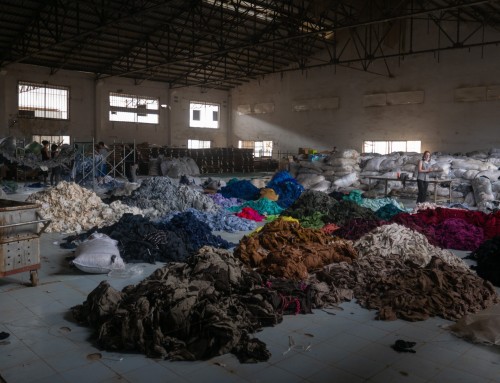It was recently announced that the Environmental Audit Committee (EAC) is planning to revisit the issue of fashion sustainability and working conditions in the UK garment industry. This is welcome and timely. Recent issues surrounding fashion sustainability have been highlighted in recent months, including concerns around Boohoo factories in Leicester, supply chain vulnerabilities exacerbated by COVID 19 and the inevitable reshaping of the industry post-pandemic.
While revisiting ways to address and fix fast fashion is a positive step, it does raise questions surrounding what exactly the government and industry is waiting for in terms of taking action. After all, we’ve been here before, and so have they. So what makes this time different?
Is this the right moment to really tackle fast fashion?
Following the first Fixing Fashion report, the UK government comprehensively rejected most of the suggestions given as solutions to tackle the fast fashion crisis. This highlights the distinct lack of drive and impetus to work as an effective collective to tackle the fast fashion crisis, which has been a major problem in dealing with the crisis up until now.
As we’ve covered extensively, the impacts of fast fashion on the planet and sustainability are grave, with time critical intervention absolutely essential.
Positively, the UK government has emphasised the importance of tackling the waste produced by fast fashion as a key priority. Regarding the revisited report, the EAC is also asking for further information on:
- Impact of COVID 19
- How employment law can be effectively enforced within the UK fashion industry
- Potentially licensing factories
- How to ensure fair treatment and working conditions across the supply chain
What’s going to be different this time?
But clearly, this is only part of the problem. Commissioning a new report is likely to drive home this message, but unless the Government and other stakeholders are willing to act on recommendations made, any action is likely to be simply tinkering at the edges in terms of having any real effect.
So what’s potentially different this time? There is potential that current attitudes, as well as the impact of COVID may drive a more effective change.
- Asking for results and input shows a willingness to genuinely collaborate
- Covid has highlighted the power imbalance between Western fashion brands and vulnerable garment workers. This greater awareness potentially will allow more action to be taken, with measures such as the COVID 19 tracker.
- Are people’s attitudes to fashion changing? Post pandemic, this certainly could be the case with regards to potential disposable income and awareness of sustainability.
- Concerns raised of poor working conditions of garment in our ‘own backyard’ of Boohoo factories in Leicester. This has shocked many consumers, increasing the possibility of real action.
So what really needs to be done?
This is a positive step, but only if any recommendations are going to be proactively listened to and acted on. There needs to be urgent action on many areas of tackling fast fashion, including:
- Proactive labour law enforcement to tackle poor working conditions across the supply chain, both in the UK and abroad.
- The creation of new economic models regarding fashion. Potentially this could include promoting reusing and recycling with tax breaks and incentives.
- Supporting the fashion industry to promote a sustainable approach to clothing across all marketing and PR activities.
To Wrap Up
Returning to the Fixing Fashion report is a positive step from the EAC, as is the focus from the Government on reducing waste in an effort to make fashion more sustainable. This may represent a clear opportunity to effect lasting change, but only if there’s real willingness to listen to, and act on any recommendations.


